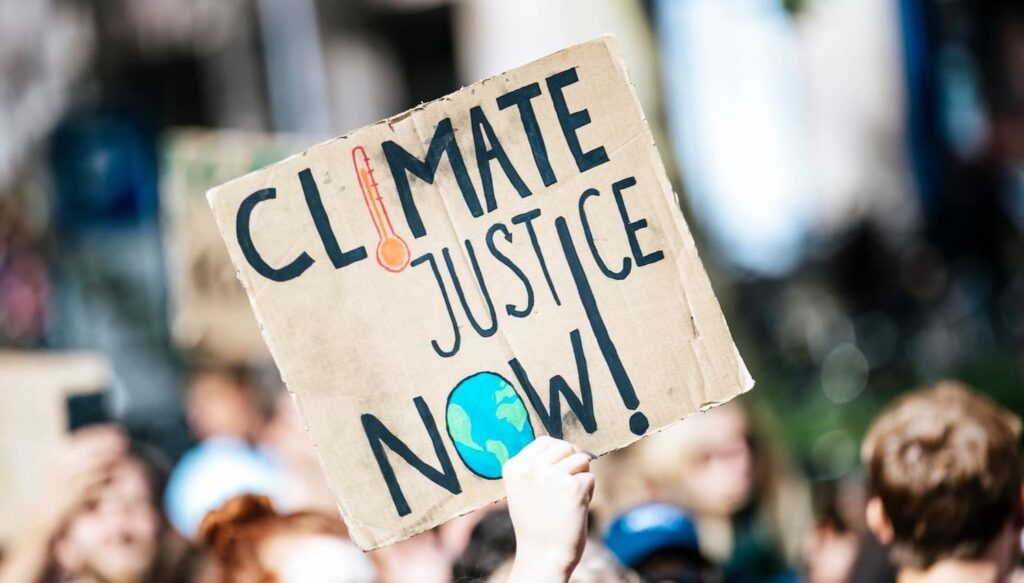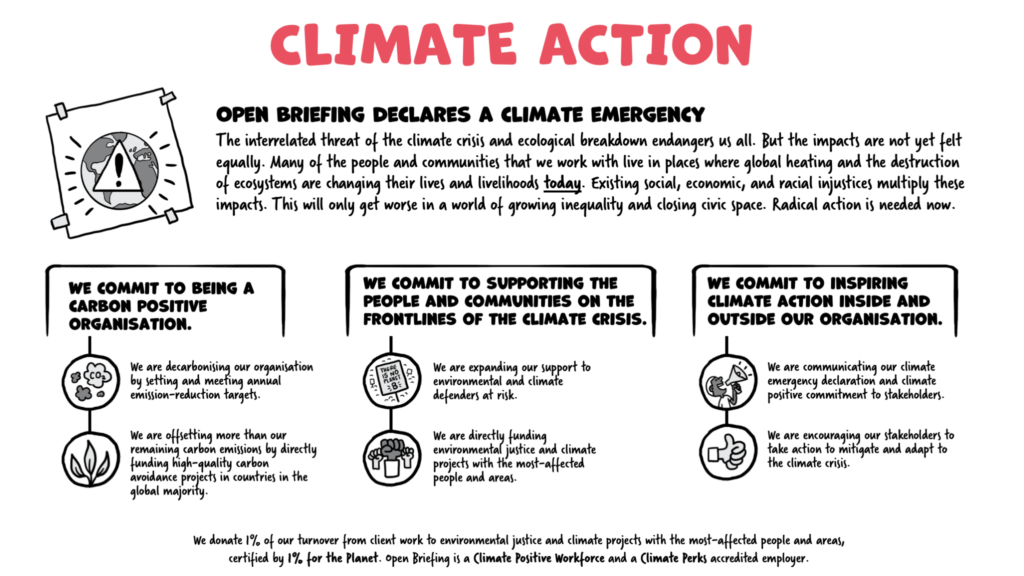
Open Briefing declared a climate emergency in 2019. Since then, we have become a Climate Action Workforce by offsetting more than the carbon emissions of each of our employees. We are also a Climate Perks accredited employer and offer our employees additional paid leave when using sustainable travel options. And we donate 1% of our turnover from client work to local environmental justice and climate projects in the global majority, certified by 1% for the Planet.
As a remote-first organisation, we deliver our support and services remotely where possible and we consider climate alongside impact and risk when assessing potential travel. We also recognise the importance of our digital carbon footprint, and have increased our web sustainability by building a low-carbon website.
But this is not enough. The interrelated threat of the climate crisis and ecological breakdown endangers us all. Many of the people and communities that we work with live in places where global boiling and the destruction of ecosystems are changing their lives and livelihoods today. Existing social, economic, and racial injustices multiply these impacts. This will only get worse in a world of growing inequality and closing civic space. Radical action is needed now.
Our environmental policy – with its green and eco-friendly promises – was inadequate to the scope and scale of the challenge. So, we scrapped it.
Today we publish our new climate action policy in its place. In doing so we make three concrete commitments in support of our climate emergency declaration. These are built on the principle of climate justice and supporting the most-affected people and areas (MAPA).
- We commit to being a carbon positive organisation:
- We are decarbonising our organisation by setting and meeting annual emission-reduction targets.
- We are offsetting more than our remaining carbon emissions by directly funding high-quality carbon avoidance projects in countries in the global majority.
- We commit to supporting the people and communities on the frontlines of the climate crisis:
- We are expanding our support to environmental and climate defenders at risk.
- We are directly funding environmental justice and climate projects with the most-affected people and areas.
- We commit to inspiring climate action inside and outside our organisation:
- We are communicating our climate emergency declaration and climate positive commitment to stakeholders.
- We are encouraging our stakeholders to take action to mitigate and adapt to the climate crisis.
The above commitments and actions are budgeted and funded, and detailed in an annual action plan. We will be transparent as we progress, sharing our successes and being held to account when we fail.
The world is boiling and there is no Planet B. Green promises are no longer enough. But climate action might just save us.

